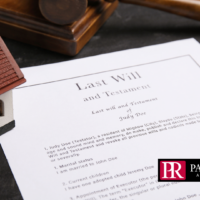Ways You Can Potentially Limit The Likelihood Of A Will Contest

As you age, are you concerned about not only the protection of yourself but also everything you love? That is why you need to create a solid Florida estate plan. Do you realize that when you create a valid Florida estate plan, you are creating lifetime documents that can give legal authority to another person of your choosing? The decision to choose this person is very important because he or she will now have the ability to make your decisions should something happen to you resulting in your inability to make decisions during your lifetime. This lifetime protection, however, is just part of the equation.
Many people when working on their Florida estate plan want to create a legacy as well. It is important to them to decide now what to do with their hard earned assets at the time of their passing. By creating a legacy through their estate plan they will be able to provide for their intended beneficiaries, not just in the present but often for years to come. In working with our clients we know how important a solid future for their loved ones is.
However, what happens when your best plans that you have created are not well received? What happens if the work you and your Florida estate planning attorney thoughtfully created for your legacy comes under attack from third parties? Third parties, such as creditors, business partners, relatives, and even your own children, who do not agree with what you intended? How do you prevent your careful planning from coming under attack and potentially being undone?
We know about these concerns and understand them. Let us share with you some ways to potentially limit the likelihood of a will contest, and ultimately be successful.
1. You need to look for and identify early any potential complications. Do you have any person or persons in your life that you do not want to inherit from you? Do you have business partners or employees who do not want to be included if you are no longer here? Do you want your business to continue without you? Could your business be sold? Is there anyone in your life, including an adult child, who you absolutely do not want to be making your decisions at the time of your incapacity or death? If you want to avoid any potential contests in the future, take the time to identify potential complications early and share them with your Florida estate planning attorney.
2. Do not risk your Florida estate planning, either in the creation or in the updates or amendments, with a do-it-yourself or internet estate plan. Be aware that there are strict laws to be followed when you want your estate plan to work. While you can read about signing provisions, execution, requirements, notarization requirements, and much more, your best defense to potential legal challenges is the experience of a Florida estate planning attorney who you choose to work with. Your Florida estate planning attorney will understand your goals, your values, what you do and do not want, and will be able to support you both in life as well as at the time of your passing, especially if any challenges arise.
3. You should consider letting others know your wishes for your legacy. Although many of our clients choose to keep their Florida estate planning goals and choices confidential, you do not have to. Communication is invaluable in all situations, especially with the understanding of what you want for your legacy. Letting key decision makers, and even beneficiaries, know your wishes early on may be a critical step in helping them understand why you did or did not make the choices they believed were in their best interest. However, before taking this step, discuss the pros and cons with your Florida estate planning attorney.
4. You should also consider trust planning, not just will planning, as a part of your estate plan. Despite much public misinformation, a Florida last will and testament does not avoid the probate process. Instead, the last will and testament ensures that a probate may be needed. Probate is a public proceeding and can give a forum for challenges to your Florida estate plan. With most Florida trust planning, however, the probate process can be avoided, and your trust administration process can be kept private.
5. It is highly recommended that you hire an experienced Florida estate planning attorney. There is absolutely no substitute for experience in this area. Your Florida estate planning attorney, with years of experience and training, will be able to help you navigate these challenges both while you are creating your Florida estate plan as well as being available for your decision makers in the event of your incapacity or death. Be sure to discuss any and all concerns you have related to potential conflict at the time of your passing with your Florida estate planning attorney early on so you can receive guidance on what the best course of action is. Secrets, uncertainty, or surprises, in this area do not benefit anyone and in fact can damage your planning if they are not disclosed in full when you meet with your Florida estate planning attorney.
We know this article may raise more questions than it answers. When your family or financial health is on the line, trust attorney Paul Riffel to help you protect your interests and achieve your goals. Attorney Paul Riffel has been practicing law in Florida for over 41 years, focusing in the areas of Tampa estate planning and family law. We encourage you to contact us and schedule a meeting with us.
